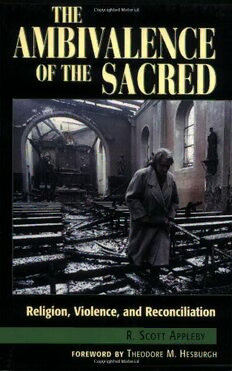
The Ambivalence of the Sacred: Religion, Violence, and Reconciliation PDF
442 Pages·2000·1.527 MB·English
Most books are stored in the elastic cloud where traffic is expensive. For this reason, we have a limit on daily download.
Preview The Ambivalence of the Sacred: Religion, Violence, and Reconciliation
Description:
Terrorists and peacemakers may grow up in the same community and adhere to the same religious tradition. The killing carried out by one and the reconciliation fostered by the other indicate the range of dramatic and contradictory responses to human suffering by religious actors. Yet religion's ability to inspire violence is intimately related to its equally impressive power as a force for peace, especially in the growing number of conflicts around the world that involve religious claims and religiously inspired combatants. This book explains what religious terrorists and religious peacemakers share in common, what causes them to take different paths in fighting injustice, and how a deeper understanding of religious extremism can and must be integrated more effectively into our thinking about tribal, regional, and international conflict.
See more
The list of books you might like
Most books are stored in the elastic cloud where traffic is expensive. For this reason, we have a limit on daily download.
